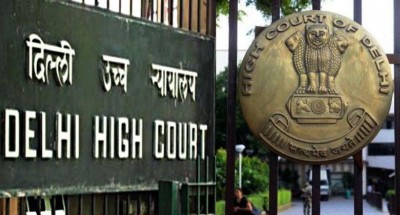
New Delhi: Probe agencies should stay abreast of technological advancements so that they can play a pivotal role in reuniting families and swiftly resolve cases involving missing children and human trafficking in an increasingly digitised and interconnected world, the Delhi High Court has said.
The high court said a user-friendly ready-to-use handbook should be developed condensing key Standard Operating Procedure (SoP) details which should be available in every police station across Delhi, ensuring easy accessibility to aid swift referencing during investigations.
Justice Swarana Kanta Sharma said as technology advances, offenders also evolve in sophistication to evade detection of their crimes and reports of missing children may involve elements of human trafficking through use of cyber space for various purposes.
“Therefore, it is critical that the investigating agencies must invest time, energy and resources to periodically not only review their own standing orders as to how investigation in such cases has to be conducted, but they should also conduct periodical workshops and online or physical lectures not only from our country but learn modern techniques of investigation in cases of missing children and human trafficking,” the court said.
It noted that mostly the investigating agencies are the hope of the relatives and parents of missing children and persons and therefore, it is of utmost importance that they should be trained in specialised techniques of finding missing children.
The court issued various directions relating to missing children and said standardised checklist must be formulated and maintained at all police stations, providing a comprehensive guide for investigating officers when handling such cases.
“The guiding philosophy in cases of investigation and following the SOP, law, judicial precedents and standing orders has to be, that children being the most valuable treasures of an emergent ‘Dynamic Bharat’ deserve the best and safe environment, and in case they become targets of a crime of kidnapping or human trafficking, the law enforcing agencies and investigating agencies must work collectively to ensure that the children are not only found at the earliest but also restored to their guardians and the offenders are punished as per law,” it said.
Justice Sharma said regular and systematic reviews of the SoP and standing orders must be carried out by the ministries concerned and the state authorities or police department, ensuring that they evolve in accordance with the changing times.
The court said the checklist for investigating cases of missing children, must incorporate specific time frames for completion of each procedure. This will ensure that the investigating officers have a clear roadmap, thus promoting accountability and expeditious resolution in such sensitive cases, it said.
“These initiatives, drawing insights not only from our national context but also from global expertise, are vital for assimilating advanced investigation techniques; including specialised training in cutting-edge cyber-enabled investigation techniques becomes paramount,” the court said.
“This comprehensive approach ensures that investigators are well-versed in the latest tools and methodologies, effectively combating the challenges posed by both traditional and cyber-enabled crimes. By staying abreast of technological advancements, the investigating agencies can play a pivotal role in reuniting families and swiftly resolving cases involving missing children and human trafficking in an increasingly digitised and interconnected world,” the court said.
The high court was hearing a man’s plea, whose 16-year-old daughter had gone missing, pointing out the lapses in the procedure adopted by police officials in case of finding the missing child.

